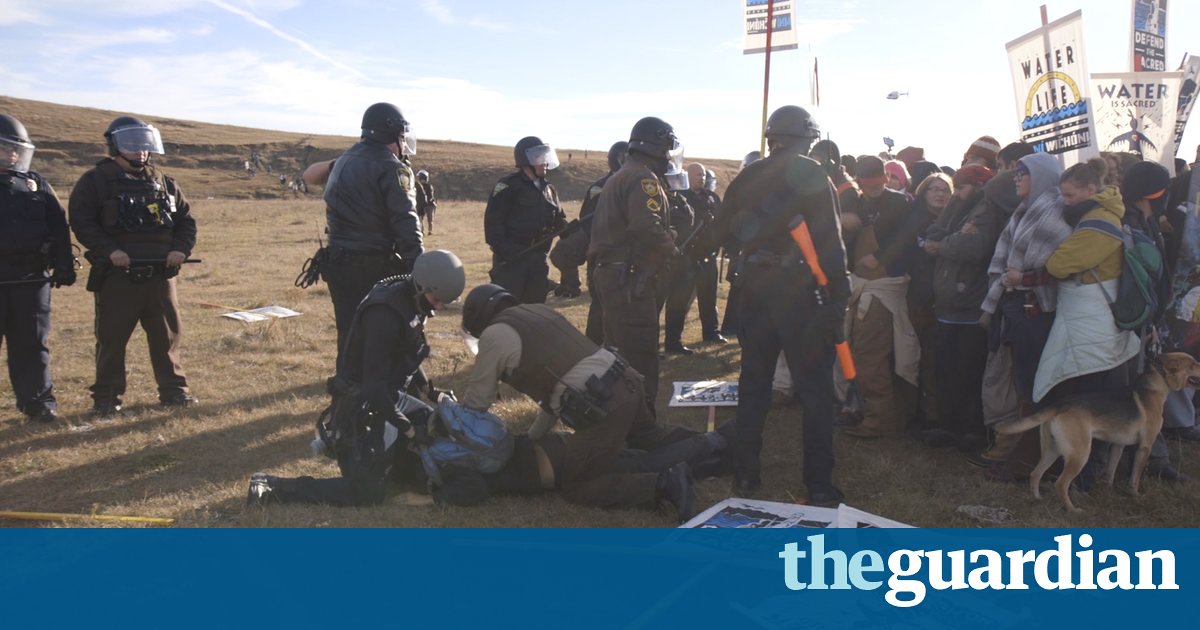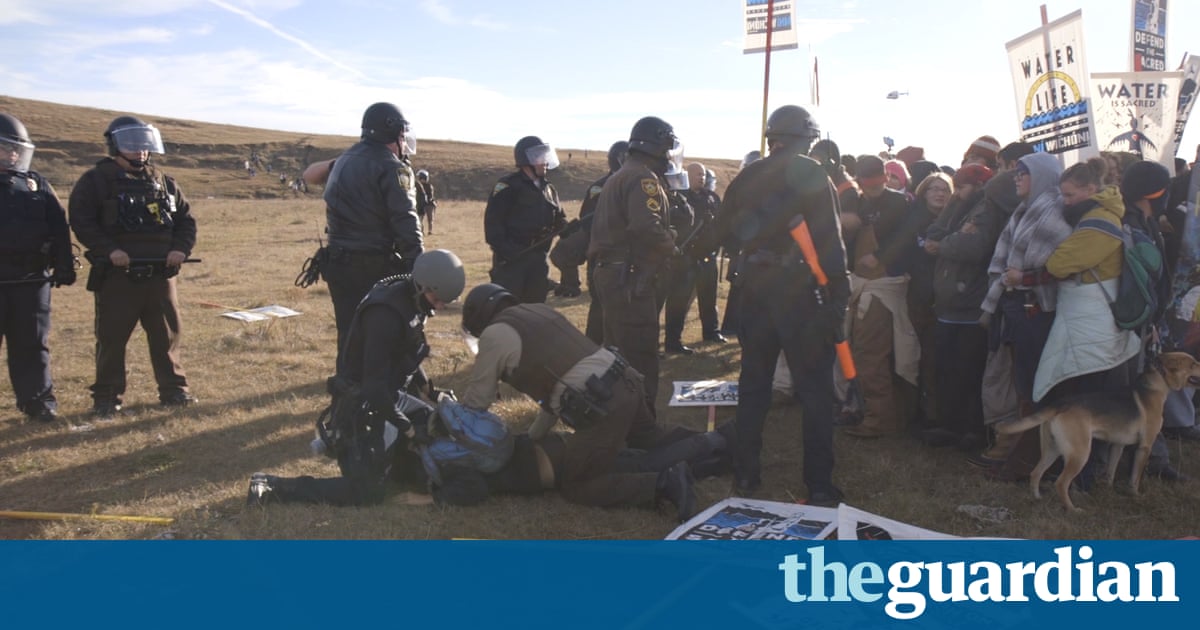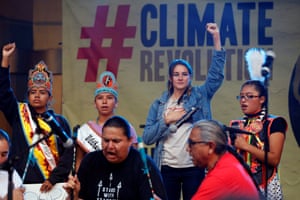Over 120 arrested at North Dakota pipeline protests, including journalists

Reporters and activists accused police of stifling free speech, saying they aggressively targeted nonviolent protesters with batons and pepper spray

North Dakota police arrested more than 120 people over the weekend at Native American oil pipeline protests, including film-makers and journalists, prompting accusations that law enforcement officials are stifling free speech and using excessive force against peaceful protesters.
There were increasingly tense clashes between police and demonstrators against the Dakota access pipeline, which the Standing Rock Sioux tribe says is a threat to its water supply and cultural heritage.
Reporters and protesters recently released from jail told the Guardian that police aggressively targeted nonviolent demonstrators with batons and pepper spray and indiscriminately arrested journalists and film-makers before issuing riot and criminal trespassing charges.
Ive covered conflicts overseas, and I never imagined I would see this kind of show of force against peaceful people, said Jihan Hafiz, a freelance journalist who was arrested hours after she arrived on Saturday. This is the kind of thing you see in the Middle East.
The Morton County sheriffs office said a total of 127 people were arrested over the weekend, including two juveniles, and that they were facing a range of charges, including reckless endangerment, criminal trespass, engaging in a riot, resisting arrest and assault on a peace officer.
Police officials, who did not respond to a request for an interview, said there had been a total of 269 arrests at the protest since August.
The mass arrests occurred less than a week after a judge rejected prosecutors riot charges against Amy Goodman, the broadcast journalist and popular Democracy Now! host whose arrest warrant sparked a national outcry about free speech violations. The actor Shailene Woodley also recently made headlines when she was arrested for participating in the protest.
Local Native American residents and activists from across the US have traveled to the site to try to block a planned $3.7bn oil pipeline, which would transport fracked crude from North Dakotas Bakken oil field to a refinery near Chicago.
The tribe has alleged that the project could destroy sacred lands and has also taken the fight to court. Some say the demonstration represents an unprecedented movement bringing together tribes, indigenous rights groups and climate activists.
But law enforcement officials have painted the protests as illegal, dangerous and violent and in recent weeks it appears that police have intensified their response efforts and called in additional law enforcement resources.
From halting traffic with their own roadblocks, trespassing on private property and endangering lives with illegal drones, these are the tactics of out-of-state agitators who have an agenda of causing fear, terror, and economic devastation, Sheriff Kyle Kirchmeier of Morton County said in a statement. Once again, their tactics indicated it was not a peaceful event.

But journalists and activists told the Guardian that there was a concerted effort to avoid arrests on Saturday and organize a nonviolent action centered on prayer.
Theyre saying that were rioting when we are just standing there in prayer, said John Red Legs, a 31-year-old Standing Rock member who was arrested over the weekend. I started singing and thats when they started tackling me.
The father of six said he was released after a day behind bars and plans to continue protesting. Im still going to fight for my kids and my unborn grandkids.
Dean Dedman Jr, a member of the Standing Rock Hunkpapa tribe from South Dakota, has recorded the protests by drone. Police claimed in a news release last week that the drone came after us and that officers fired at it and damaged the device.
Dedman, who has contributed video footage to the Guardian, said his drone was never a threat and that he plans to continue filming the demonstration.
It makes me feel sick to my stomach, he said of the recent arrests. Theyre pretty much escalating this on their own Were just sitting here praying.
Sara Lafleur-Vetter, a film-maker who has also provided video coverage for the Guardian, said police confiscated her camera after arresting her on Saturday.
Its completely over-militarized, she said, noting that she was standing in between police and protesters and tried to explain that she was a film-maker. When youre there, its really surreal.
Hafiz, who is based in Brazil and Washington DC and covered the Arab spring protests, said police arrested her even after she showed her press identification.
In jail, she said, she and other women were subject to humiliating strip searches.
As of Tuesday morning, police were still holding her camera as evidence.
Its very clear that they are trying to create a media blackout, she said. The excessive force was completely unwarranted not only against me and Sara as working journalists, but also against people who are unarmed, praying and peaceful.